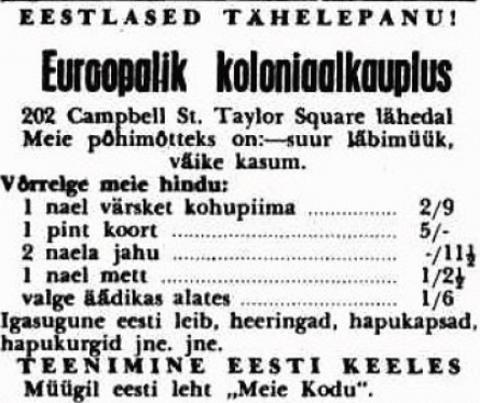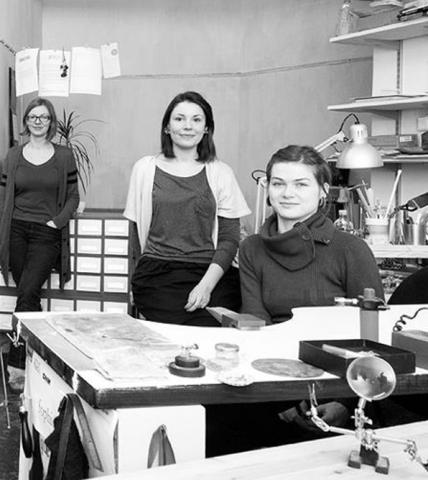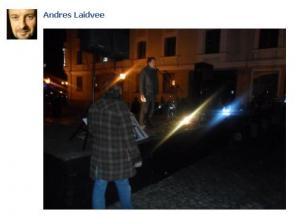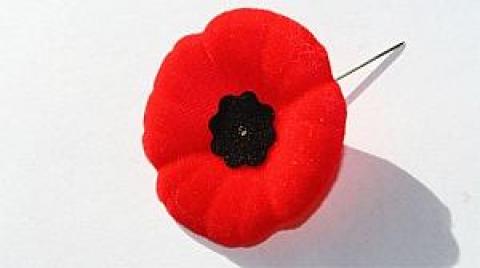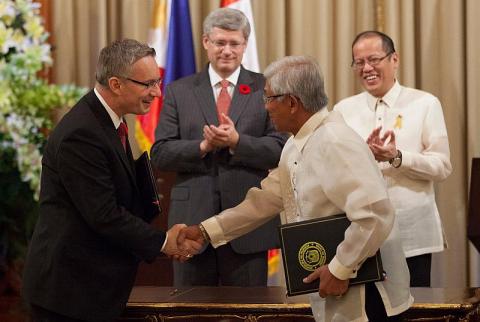Mart Laar:
Wall Street Journal, August 20, 2004
Aug. 23, 1939, sealed the fate of my family. On that day, Nazi Germany and the Soviet Union signed the Molotov-Ribbentrop Pact, whose secret protocols divided up Central and Eastern Europe between them.
Within five years, my grandfather was shot by the Nazis. Two of my great-uncles were sent to Siberian death camps by the Soviets. My father-in-law was deported to Siberia as a nine-year-old boy, where he
struggled to survive against death by starvation. Unknown to him, his hopes of seeing his father alive again were in vain; his father was shot early in 1941 by the KGB in Moscow's Kirov prison for the crime of being an ordinary policeman in independent Estonia.
Thousands of stories like these have recently emerged from the Soviet archives. The new evidence shows that by encouraging Hitler to start World War II, Stalin hoped to simultaneously ignite a world-wide revolution and conquer all of Europe.
A week after signing the pact, on Sept. 1, 1939, Hitler attacked Poland from the west. On Sept. 17, Stalin's Red Army hit Poland from the east and finished the job. In the next few months, Stalin took Bessarabia (currently Moldova) from Romania. Then his army moved to the Baltic countries of Estonia, Latvia and Lithuania and annexed them in 1940. In November 1939, the Soviet Union invaded Finland, which heroically defended itself during the Winter War.
All of the conquered territories suffered through terror, deportations and killings. For the next 10 years, well after the formal end of the war, armed resistance movements fought against Soviet aggression in the Baltics and western Ukraine. They were then replaced by political resistance movements. As a result of Soviet occupation, the Baltic countries alone lost more than a fifth of their population.
This cannot be forgotten, nor forgiven, just because, after two years of their alliance, the Hitler-Stalin conflict started in 1941 and resulted in the sacrifice of millions of Russians fighting against the beast that
Stalin himself had helped to unleash on the world.
The postwar Nuremberg tribunal was justified in condemning one part of this criminal pact -- Nazism. Even more, Germany has publicly apologized for the Molotov-Ribbentrop Pact and for all the destruction and terror that Nazi Germany visited on the world. Perhaps this has not healed all of the wounds
but it has healed a lot of them. And that matters not only for the victims of Nazism but for Germans themselves. Germany has faced up to its past and is now free to keep building its democratic and prosperous society.
Unfortunately the same has not happened to the other side in this bargain. The crimes of communism are not condemned. During most of its existence, the Soviet Union denied even the existence of the secret protocols of Molotov-Ribbentrop, not to mention the crimes against humanity that are directly attributable to this pact, such as the massacre of thousands of Polish officers at Katyn early in the war. And even when the existence of secret protocols was recognized, first the Soviet Union and then Russia refused to undo the results of the pact. For instance, only after enormous international pressure was exerted on Russia did Moscow withdraw all its troops from the Baltic states on Aug. 31, 1994. This day is now marked as
the end of World War II for these countries, with celebrations each year.
But in Moldova, annexed by the Soviet Union after Molotov-Ribbentrop, Russia still maintains military bases regardless of protests by Moldova, the OSCE and the European Union. Russia has often promised to remove its troops from this area, but until this occurs, remnants of the pact are
still in place.
To this day, Russia maintains that Estonia, Latvia and Lithuania were never occupied by the Soviet Union. This month, Russia refused to apologize for standing by, just outside the city, as the Nazis crushed the Warsaw Uprising of 1944, because Moscow hoped the Nazis were, in effect, smoothing the way for a communist takeover of Poland in 1944. Worse yet: Russia refuses to say three simple words to the victims of communism: We are sorry!
Those words can help heal many wounds and remove existing mistrust. But an apology isn't as important even for the victims of communism as it is for Russia itself. When a nation cannot face up to its history, it will live like a human being suffering from a permanent neurosis. Nations that cannot make peace with their past cannot build a future. It looks increasingly as if this is one of the reasons why democracy is not thriving in Russia and why this great country hasn't developed as hoped after the fall of the
Soviet Union. We all must encourage and support Russia to follow this difficult path.
(Wall Street Journal, August 20, 2004)
When will Russia say 'sorry' ? (2)
Kuumad uudised | 20 Aug 2004 | EWR
Viimased kommentaarid
Kommentaarid on kirjutatud EWR lugejate poolt. Nende sisu ei pruugi ühtida EWR toimetuse seisukohtadega.
An ordinary Rezun AKA Suvorov-style historical fictory from Mart The Liar
Fantastiline artikkel. Selliseid artikleid on rohkem vaja välismaal.
Kuumad uudised
TRENDING






